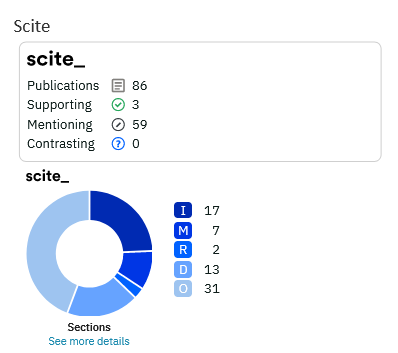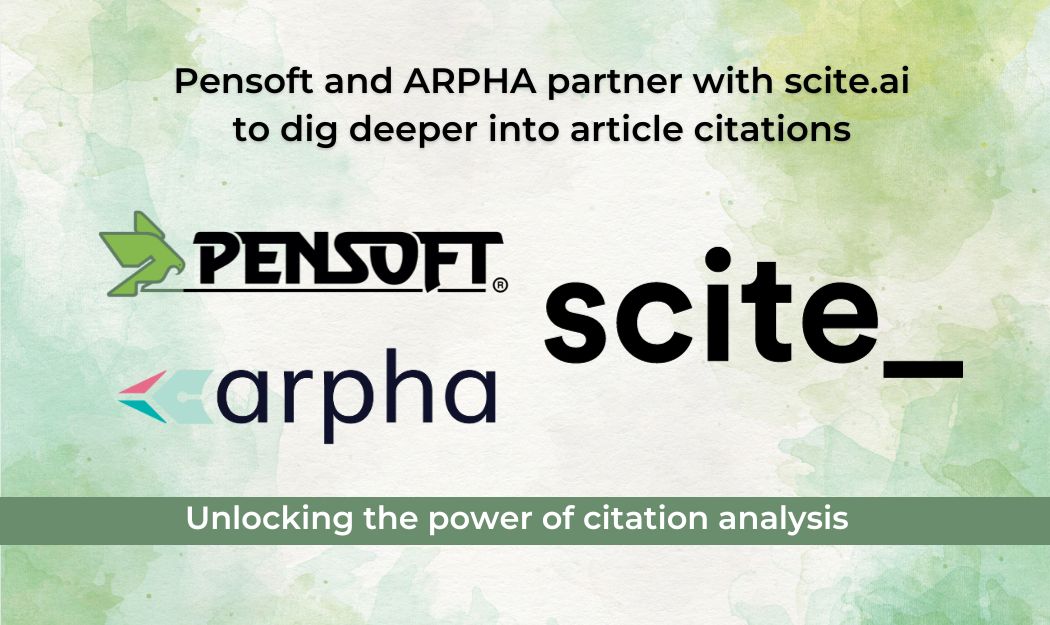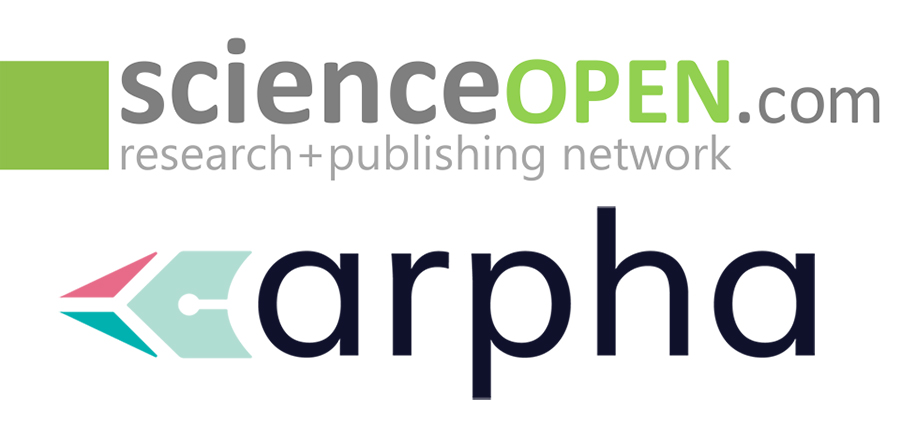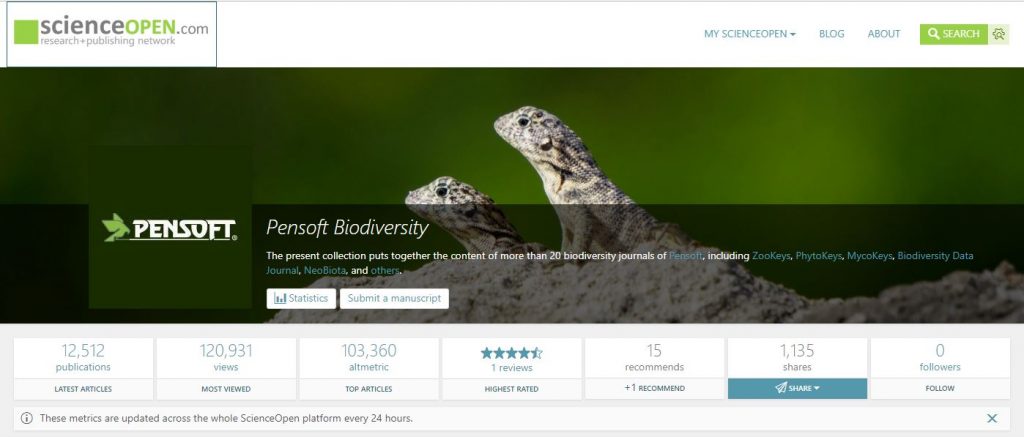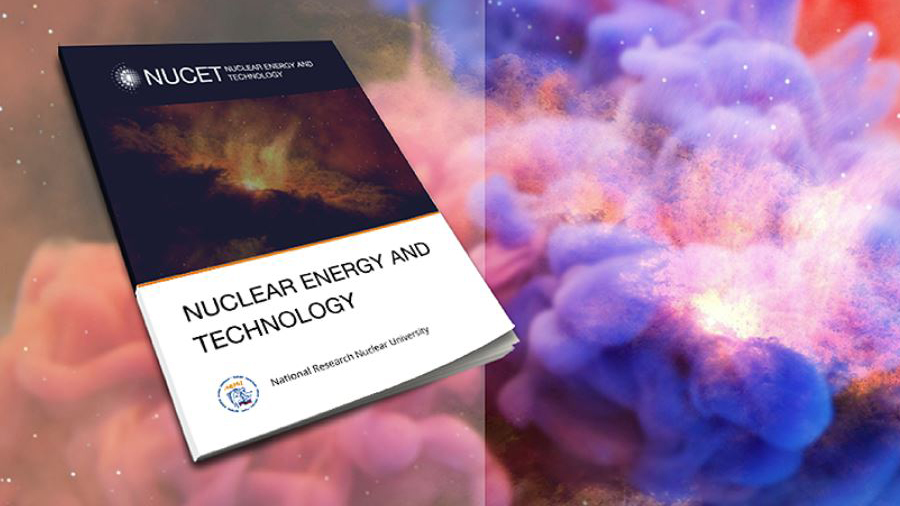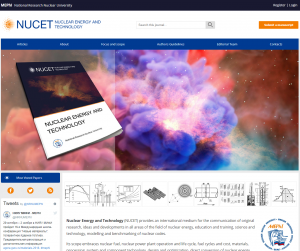Newly published research articles demonstrate numerous innovative features to the benefit of readers, authors and all other users
Follow Herpetozoa on Twitter and Facebook.
Published since 1988 by the Austrian Herpetological Society (ÖGH, Österreichische Gesellschaft für Herpetologie), the renowned peer-reviewed, open-access Herpetozoa is added to the growing portfolio of international scientific journals published on the ARPHA scholarly platform, as a result of a new partnership with scholarly publisher and technology provider Pensoft.
As before, Herpetozoa welcomes original research articles, short contributions and reviews covering all aspects of the study of amphibians and reptiles. The papers are published in English, whereas a translation of the abstract into German may also be included. The journal operates a single-blind peer review policy.
Seen in the first 2019 publications of Herpetozoa, now available on a brand new website, is a long list of innovative features designed to promote visibility, access, reuse and citability of the scholarly outputs.
Right underneath the new sleek look and feel welcoming users from the journal’s homepage, there are a lot of high-tech perks to benefit authors, readers, reviewers and editors alike.
Thanks to the fast-track and convenient publishing provided by ARPHA, each manuscript is carried through all stages from submission and reviewing to dissemination and archiving without ever leaving the platform’s collaboration-friendly online environment.
Furthermore, all publications are available in three formats (PDF, XML, HTML), complete with a whole set of semantic enhancements, so that the articles are easy to find, access and harvest by both humans and machines.
Editor-in-Chief of Herpetozoa, Dr Günter Gollmann states:
“We decided to move to Open Access online publishing to increase the visibility of our journal, and to speed up the publication process. The highly attractive presentation provided by Pensoft should boost attention for the papers we publish. While Herpetozoa welcomes contributions of any length on all topics in herpetology, I hope that authors will appreciate the suitability of the new format for data-rich studies in natural history. Such research is often dismissed as “too descriptive” by other international journals, but is essential for conservation of biodiversity,”
ARPHA’s and Pensoft’s founder and CEO Prof Lyubomir Penev says:
“I am pleased to see Herpetozoa having found its new home on the ARPHA platform amongst all Pensoft journals and other highly reputed academic titles from around the globe. With our own strong background in zoological sciences, I am certain that our partnership with Herpetozoa will be quick to prove fruitful to both of us, but most importantly, to all readers, authors, editors and reviewers alike.”
With its move to the open-access, technologically advanced scholarly publishing platform, Herpetozoa lines up next to historical and well-known society journals, including Deutsche Entomologische Zeitschrift, Alpine Entomology (previously Journal of the Swiss Entomological Society), Journal of Hymenoptera Research, Zoologia and others, which have all chosen to modernise with the help of ARPHA.
What’s new on Herpetozoa?
Amongst the first batch of articles published in Herpetozoa in partnership with ARPHA/Pensoft, there is an Italian study tracking the long-disputed origin of the Mediterranean-native common chameleon (Chamaeleo chamaeleo) back to its ancestors in North Africa and the Middle East. Another paper by a research team from Romania compares the effects of carnivore, vegetarian and omnivorous diets on the growth, development and mortality in tadpoles of the common toad. In their study of the South American frog species Leptodactylus fuscus, scientists from Universidade Federal de Mato Grosso do Sul (Brazil) compare the diet of a population living in the wild with another one, which inhabits an urban environment. Their aim was to determine the impact urbanisation could be having on this otherwise abundant amphibian.
###
Herpetozoa is indexed in Biological Abstracts; BIOSIS (Previews); Current Contents – Agricultural, Science Citation Index (Expanded); Web of Science; Zoological Record (Plus). Currently, its Journal Impact Factor stands at 1.125.
Additional information:
About the Austrian Herpetological Society:
The Austrian Herpetological Society (Österreichische Gesellschaft für Herpetologie, ÖGH) was founded in 1984 to advance all branches of herpetology. The society supports scientific research and promotes conservation of amphibians and reptiles, as well as their habitats. To raise public awareness of these animal groups, ÖGH organizes meetings and excursions and publishes the journals Herpetozoa and ÖGH-Aktuell.
